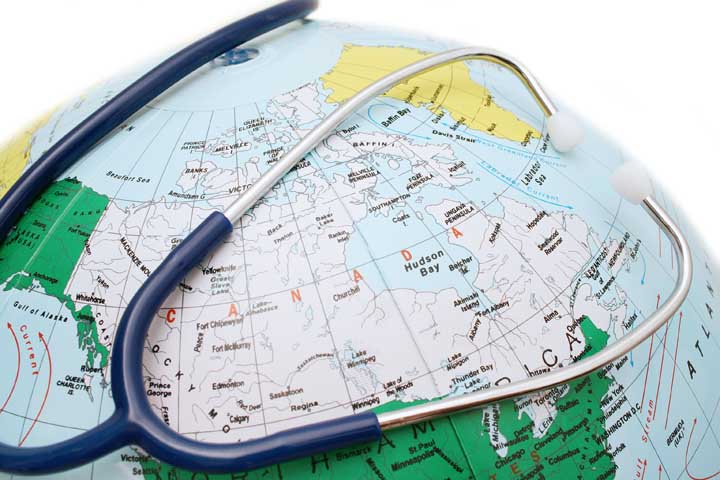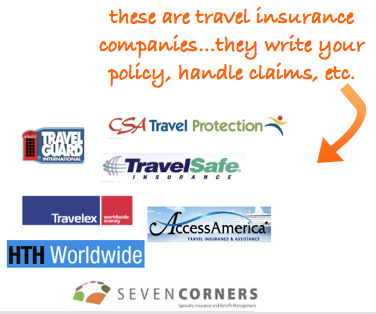When looking for a low cost travel health insurance policy, start by determining your needs
 As you might know, there are 2 general types of travel insurance. Insurance, in simple terms, is a form of financial protection. You pay a little money (the premium), in exchange for the promise to pay the larger expense if something happens.
As you might know, there are 2 general types of travel insurance. Insurance, in simple terms, is a form of financial protection. You pay a little money (the premium), in exchange for the promise to pay the larger expense if something happens.
The first step in finding the right trip insurance policy for your vacation or business trip is asking yourself what exactly you need to cover?
Here are the 2 general types of travel insurance:
- Travel Health Insurance- Also known as travel medical insurance, this is meant to replace the medical coverage you have at home. While visiting a foreign country, your insurance from home (i.e. Blue Cross, Harvard Pilgrim, etc.) may not cover your expenses. Medicare is definitely not effective abroad. This type of insurance covers accidents, illness, hospital care, and usually medical transportation.
- Trip Cancellation Insurance- This type of insurance is meant to cover your financial investment in the trip. When you organize a vacation, you commit to spending a large amount of money on hotel rooms, airfare, rental cars, special tours, etc. If you need to cancel the trip, you are still responsible for many of these expenses, and you would lose that money. A trip cancellation policy provides financial protection against canceled vacations, reimbursing you for non-refundable, covered expenses.
How to find a low cost travel health insurance policy
If you decide that you want a travel health insurance policy, it’s time to get a quote. Use a comparison site to see instant quotes from several companies (see How to Compare Quotes with a Travel Insurance Comparison Site). Make sure you are looking at the “Travel Medical” policies, and not the “Trip Cancellation” policies.
You may notice that there is a price difference between some of the different products. That is because each company offers various coverages and coverage amounts. This is where you should read through the different policies and make sure you are comfortable with the benefits.
Also be sure to read through the “Exclusions” section of the policy. You can find this in the “Certificate”, which is usually a download-ready document that spells out the specifics of each policy. The “Exclusions” section lists risks that are NOT Covered under the policy. For example: most companies will not cover injuries sustained while intoxicated, such as a drunken fall down a set of stairs.
Click and buy
Once you have found a policy you like, you can click and buy, right online. The policy will be mailed to you, and most travel insurance companies will email a confirmation as well, with all the policy details. Again, a great way to compare different policies from various carriers is with a comparison site (see How to Compare Quotes with a Travel Insurance Comparison Site)

 It covers some of the unexpected things that can happen during a family trip so that the only worries a family has is whether to pull over for ice cream or not. Travel insurance for families can cover things like lost luggage, or liability and damages to a rental car.
It covers some of the unexpected things that can happen during a family trip so that the only worries a family has is whether to pull over for ice cream or not. Travel insurance for families can cover things like lost luggage, or liability and damages to a rental car. That’s where one of the helpful benefits of over 65 travel insurance (for retirees) is so essential. Coverage for trip cancellation means that if you or your spouse don’t feel well before traveling, you can cancel the trip without penalty. Of course no one wants to miss a trip they have planned for months, but having trip cancellation coverage means that you can put the trip off for another day in case there is a medical emergency or illness. If you’re living on a fixed income, having trip cancellation insurance means that you will be able to go on your trip another time without detriment to your finances.
That’s where one of the helpful benefits of over 65 travel insurance (for retirees) is so essential. Coverage for trip cancellation means that if you or your spouse don’t feel well before traveling, you can cancel the trip without penalty. Of course no one wants to miss a trip they have planned for months, but having trip cancellation coverage means that you can put the trip off for another day in case there is a medical emergency or illness. If you’re living on a fixed income, having trip cancellation insurance means that you will be able to go on your trip another time without detriment to your finances. However, even if your insurance will cover your medical care, the amount and quality of care you may receive will vary widely. In some cases, you may have to wait much longer to receive medical care, or the medical care will be below the standard you’re accustomed to, or, at the very least, you’ll have a bureaucratic paperwork nightmare on your hands.
However, even if your insurance will cover your medical care, the amount and quality of care you may receive will vary widely. In some cases, you may have to wait much longer to receive medical care, or the medical care will be below the standard you’re accustomed to, or, at the very least, you’ll have a bureaucratic paperwork nightmare on your hands. I have written another post on this specific topic;
I have written another post on this specific topic;